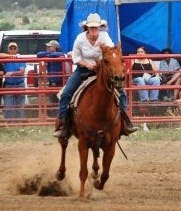When I decided to take this job on the other side of the world, I breathed a sigh of relief because, obviously, Australians speak English. In the face of countless foreign experiences and situations, at least communication would not be a challenge the way it had been living in Belgium and France. Or so I thought.
In truth, Australian English and American English are related the way rock and roll and country music are related- both use the same basic components, but do so in a way that achieves entirely different results. My first week here I could only stare dumbly at people when they talked, barely able to extract even the vaguest meaning from their talk. Even now, conversations with me are strangled by “Sorry?”s and “What was that?”s and “I don’t know what that means”s. Thankfully the people here are, for the most part, very patient with me and have thus far been willing to repeat themselves ad nauseum until I understand. I keep telling myself that I just need time for my ear to adjust to this new version of my native tongue, but it’s slow going.
My trouble with Australian is threefold- the accent, the vocabulary, and the idioms. Combine these with some background noise and several people talking at once, and they may as well be speaking Dutch. The Australian accent that I have heard before is sort of a British southern lilt, exemplified by Heath Ledger, Nicole Kidman, and the like. However, the accent deep in the heart of the Outback is more like Australia’s version of an Alabaman accent- consonants and sometimes whole syllables go missing from words, parts of speech are dropped or mashed together, and sometimes it seems whole conversations can be had without any movement of the lips or tongue. One Sunday afternoon one of the women here asked “ch’bin kitchen’sm zeds?” I stared at her in astonished incomprehension and the poor woman had to repeat herself three times before I could decipher “have you been catching some zeds?” (ie- sleeping). Yes. Good talk.
The different accent is understandable- oceans tend to do that to the evolution of language. But the whole different set of words I find puzzling. For example, which linguistic evolution could have led to something being a “bell pepper” in the US but a “capsicum” over here? Why is a “wrench” a “spanner,” a “truck bed” a “tray,” and “ground beef” “mince”? Almost daily I pick up some object and say “What is this?” like some kind of very old kindergartener. Half the time the answer is “extension cord” and I am given a look that implies “What kind of idiot doesn’t know what an extension cord is?” The other half, the answer is some mysterious new term, like “conserve” (jelly) or “bonnet” (truck hood). Just to make things even more confusing, many of the words I do know don’t mean the same thing here. For example, cookies are “biscuits,” but biscuits are “scones” (pronounces Skohn, NOT skOne). Also, chips are chips or sometimes crisps, while fries are chips as well. Confusing.
To top it all off, almost everything Australians say is some form of colloquialism. For example, “hello” is “how ye goin’?,” "thanks" is "cheers," “you’re welcome” is ALWAYS “no worries,” and “OK” is “righteeo.” There are frequent references to “guts,” which means anything from "innards" to "middle" (of ANYTHING) or even "all of it." For example,you could say "The road runs through the guts of the paddock 9," but “you just add water and then stir the guts out of ‘er” is equally acceptable. Lovely. My favorite expression by far, though is “flash.” This means “cool” or “great.” In can be used as in “Oh, it’s nothing too flash” (here meaning “fancy”), or “That’s some flash new Ute you got there.” (“Ute” means any type of "utility vehicle," but most commonly refers to a car similar to the El Camino, popular among Australian males age 10-100. Of the 10 personal vehicles at the station, 7 of them are Utes.)
Given the amount of trouble I have had understanding them, the Australians say they can almost always understand me (almost). I probably have Hollywood to thank for that. There is a British fellow here, our full-time pilot, and while I can understand him easily, the Australians often don’t at all. Curious to see just how far this country has strayed from the Mother Land.
Subscribe to:
Post Comments (Atom)

That was wonderful.
ReplyDelete- your cousin